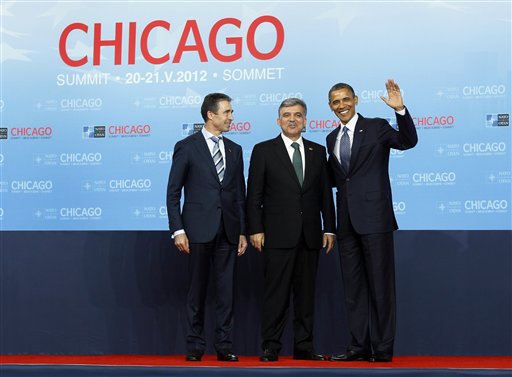Are Turkey and Africa the keys to Europe’s future?
By Robert L. Price

Are Turkey and Africa the keys to Europe’s future?
By Robert L. Price
Editor’s Note: Worldview contributor Robert L. Price was at this past weekend’s NATO summit and has been blog throughout the week on the summit and sustainability issues. Today, Price looks at how Western Europe made a historic bet, choosing Greece, Italy and Spain over Turkey and Africa — and how that bet came up short.
In 2009, I was at a symposium in Chicago given by the Urban Affairs Association. One part of the event discussed Mediterranean cities. Many lecturers and breakout sessions covered cities such as Barcelona, Naples and Athens.
Barcelona was noted for its diversity and rich cultural heritage as a result of its African roots. Spain has a Moorish tradition that clearly influenced its architectural heritage. Spanish trade with Africa, and especially the East, was one of many reasons for its past wealth and glory.
For Naples, the presenter demonstrated how its seaport was one of Italy’s busiest, and how, for prosperity sake, the Italians should consider reorienting towards the South once more. When Italy faced south, like Spain, it knew great prosperity. Then there was Athens. Although much discussion centered on modern Athens, the presenter did not deny its ancient links to Africa, via Egypt, for centuries, if not millennia, and how Greece historically shared riches with Asia Minor.
This week I saw an address sponsored by the Chicago Council on Global Affairs. Turkish President Abdullah Gul, in town for the NATO summit, was the guest speaker. His talk was quite optimistic:
Despite many global economic risks, the Turkish economy rests on sturdy macro foundations … [it has] an economy with strong public finances, sustainable debt dynamics, a sound banking system, functional credit markets.
Countries like Tunisia, Egypt, Libya and Yemen, which are now at the post-revolutionary stage of institutionalizing the change, Turkey is their most active partner.
In Africa alone, we will have 34 embassies by the end of this year, whereas we had only 12 in 2009.
Greece has been idealized as the cultural, philosophical and historical bedrock of Western civilization. This emotional connection had to score extra points in Greece’s bid for European Union membership. Turkey, on the other hand, has lobbied for membership since 1959, but the Turks were perceived as too big, too poor, too Muslim or too “other” to join the EU.
Now look at Spain, Italy and Greece, all of which ignored their former southern Mediterranean or African trading partners. They are in financial dire straits and represent the weakest economic links of the European Union. Compare them to Turkey, a NATO member, denied admission to the EU club. It embraced its African Mediterranean relationships and now emerges as an economic model for Europe.
Any regrets, EU?
Robert L. Price is an architect and interior designer based in Shanghai, China. He is Worldview’s arts and architecture contributor and a Global Cities co-contributor. Price also serves as Senior Associate and Technical Director for Asia at Gensler, a global design firm.